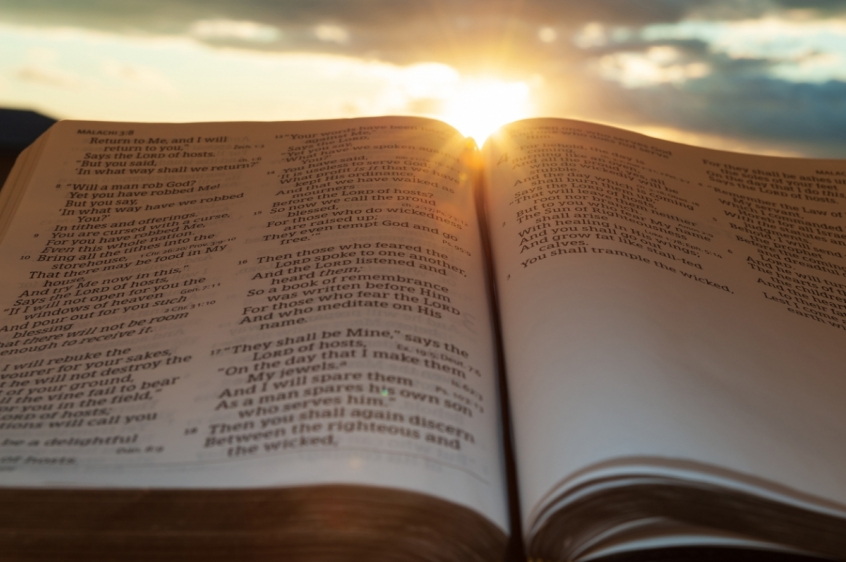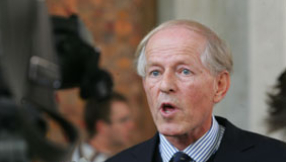
Jewish academic and Hebrew scholar Irene Lancaster explores the meaning of 'Teshuva' as Jews around the world prepare to mark their holiest day, Yom Kippur.
This is what we are asking ourselves, and especially at this time of year. Teshuva is the key question of Judaism and embraces the whole world. Normally translated as 'repentance', is this its true meaning? Repentance implies both sin and guilt and if we start from that premise, then most of us become frozen and don't know quite what to do.
Others point out that Teshuva actually means 'return'. As G-d says (Malachi 3:7) 'If you return to Me, I will return to you'? But, yet again, where to get started?
Recently, we have experienced what appears on the surface to be a complete change of heart at the top of this country. In the last few days, the UK Prime Minister has completely turned around his attitude to net zero, in order - he states - to accommodate the short-term needs and aspirations of the vast majority of the citizens of this country.
So, is political expediency the same as Teshuva? Is appeasement in the short term anything at all to do with Teshuva?
This Yom Kippur, we remember with great sorrow the Yom Kippur War of 50 years ago, when the Prime Minister of this country opted to appease Arab oil interests. Edward Heath stated that he would prefer Israel to be destroyed rather than assist the USA by allowing them to land in this country, in order to refuel their planes, en route to help the Israelis. For, on Yom Kippur 1973, the Israelis had been attacked by Arab armies while fasting and praying in synagogues around their tiny country. No mobile phones in those days. But rabbis knew. They told their congregants to immediately break their fast on the most solemn day of the year and swiftly join their units. If the Jewish people were destroyed, there would be no more Yom Kippurs in any case!
Teshuva goes together with kapparah, usually translated as 'atonement'. But the root k-p-r in the Hebrew Bible throws up definitions of a different order. In fact, usually k-p-r signifies a covering and protection of some sort.
In Genesis (6:14), k-p-r is the covering to protect Noah's Ark both within and without. In Genesis 32:21, k-p-r signifies the 'cover' for the gift given by Jacob to Esau, in order to 'appease' him. In Exodus 16:14, we have k-p-r as hoar frost covering the manna from heaven and in Exodus 25, k-p-r becomes the cover for the ark in the Mishkan (Tabernacle).
So, k-p-r has come to signify a sort of plug or stop-gap, a means of protecting ourselves in our encounter with G-d. And in a certain way the link with Teshuva is that we then reach the point when we can uncover our defences, and through uncovering, we can then discover the new place, the new relationship with people and therefore with G-d.
But this encounter needs great preparation, and therefore our Sages have set out a number of stages on the journey of discovery. These can be defined as leaving the past behind, looking to the future, and living in the present.
The great Rav Kook, first Chief Rabbi of Mandated Palestine, saw Teshuva as the natural state of being. He believed in progress, in the world constantly bettering itself. For him, Teshuva is the world striving towards its own natural perfection, constantly moving and developing. The secret to Teshuva, he said, is energy. And, as our rabbi commented in his dvar Torah on Rosh Hashana (Jewish New Year), when Prince William visited Israel in 2018, the main impression he took away with him was that of a country imbued with tremendous energy. For Rav Kook, Israel's achievements in science and medicine alone are a great sign of Teshuva, eventually leading to the coming of the Messiah. According to him, just as plants 'want' to grow, so we humans are programmed to do Teshuva.
The wake-up call is a compulsory prerequisite nevertheless. In a lovely dvar Torah given a few years ago, the aptly named Rabbi Marc Angel of New York, a Jewish leader in so many spheres, referred to the angels jumping up and down on Jacob as he lies sleeping in Bet El, as they go up and down the famous ladder (Genesis 28:12).
And this is where the shofar comes in handy. The shofar is blown on Rosh Hashana and on Yom Kippur. Constructed from the horn of a kosher animal, usually a ram (to remind us of Abraham's binding of Isaac at the Akeda - Genesis 22, read at Rosh Hashana in synagogues throughout the world), the shofar is small to start with, but then makes a large incomparable sound - Tekiya, Shevarim and Teruah. These very basic sounds represent release, followed by the brokenness of life, leading to the crying and sobbing entailed by brokenness. However, the series of sounds ends with the Tekiya Gedolah, the 'great wholeness' engendered by a broken heart.
I would like to end with a couple of stories, which may illustrate what is meant by Teshuva as return, discovery and therefore recovery. A young English translator, now living in Israel, talked on a podcast about what translation means to her. She said that to be able to translate, you must love the text. You must not be frightened of rendering Hebrew prayers, for instance, into beautiful English. This podcast meant a great deal.
I would say that in order to translate, you need the right balance between awe and love. Awe is necessary simply out of respect for the original writing in the original language. But too much awe means that you, the translator, are frozen, as mentioned at the beginning of this article. Love means immersion. It means taking a risk and jumping in. It means not being afraid to be vulnerable. You will no doubt be criticized for your translation, especially from Hebrew, the holy language, but that is the price you have to pay for love. And both the process and the result are immensely healing.
Another podcast that hit home was about a famous musician who learned the wrong concerto for a concert she was giving. She is seen on video telling the conductor that she can't go on, as she has learned the wrong piece. He tells her that she knows it already and that she can do it.
After the podcast, I looked up the musician in question. The piece was Mozart's 20th piano concerto in D minor. And the whole episode brought back memories. From the age of 5 until around 15 all I wanted to do was music. At 13 or 14 I played at the Liverpool Philharmonic and the piece was the same, Mozart's 20<sup>th in D minor. And suddenly, in the middle I froze. The orchestra continued regardless, and suddenly I managed to rejoin. It was as if I was lifted by the orchestra to greater heights and the music won the day.
If we are lucky, our greatest relationship of pure love will be with our parents, who will always carry us, no matter what. Sadly, this isn't always the case, but in my case it was. But then we grow older and realize that our parents are human like us, and we look around for experiences, even one experience, that reminds us of our original childlike relationship with our parents.
At that moment in Liverpool, playing my favourite piece of all time by my favourite composer, something happened, and I couldn't go on. I got stuck. But then the orchestra became my parents once again, and I was able to carry through to the end. Had I felt sinful and guilty, or even merely embarrassed, I would not have moved on. I would have been frozen. Knowing that everything was OK led me to complete the task ahead.
This is the closest human analogy I have to what is meant by Teshuva. In life, we will often find ourselves frozen in time, simply not knowing what to do, unable to move on. And at that point in time, we will have to wake up; we will have to lose our egos and gain trust and hope. Hope, known as Tikvah in Hebrew, is the knowledge that we can make things better, but we can only do that by trusting a force greater than ourselves, and that force is known as G-d.
And that is what Teshuva means to me.













